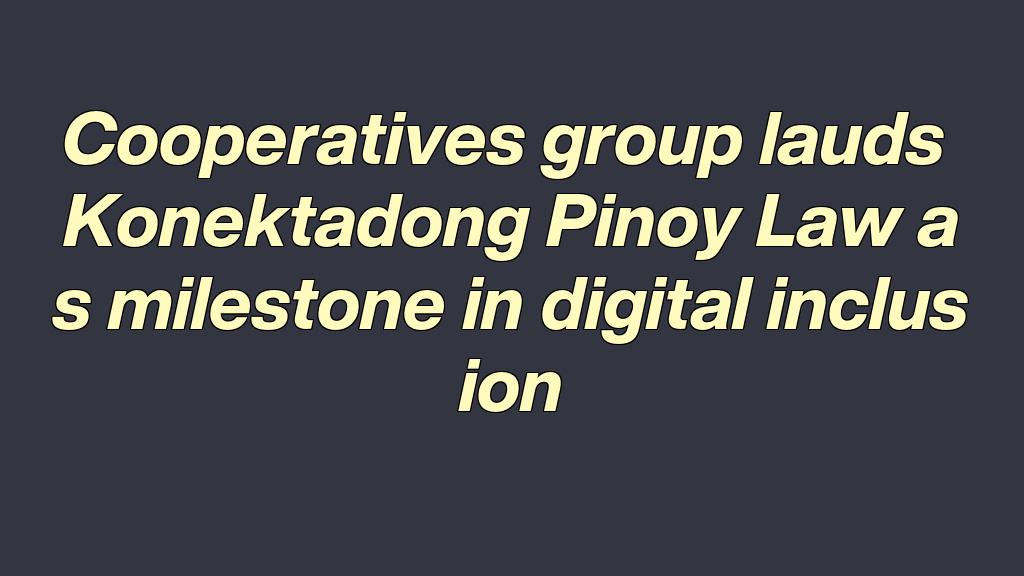THE National Confederation of Cooperatives (Natcco Network) welcomed the enactment of the Konektadong Pinoy Law, describing it as a landmark measure for expanding digital access and financial inclusion in the Philippines.

Formally known as the Open Access in Data Transmission Act, the law lapsed into effect on Aug. 24.
It removes the decades-old requirement for a legislative franchise for new internet providers, allowing more players to enter the market.
The measure also promotes open-access policies, encourages infrastructure sharing, and seeks to accelerate broadband rollout to improve affordability and bridge digital divides — particularly in rural and underserved areas.
Cooperatives group lauds Konektadong Pinoy Law as milestone in digital inclusion
Natcco, a federation of 1,051 cooperatives serving more than 7 million members nationwide, had endorsed the bill’s passage.
On May 1, its board of directors approved a resolution supporting the measure, stressing that reliable and affordable connectivity would help cooperatives digitize operations, expand mobile services, and create new economic opportunities.
“Enhanced connectivity empowers cooperatives, especially those in rural communities, to deliver services efficiently and promote inclusive growth,” the resolution stated., This news data comes from:http://www.xs888999.com
The group noted that poor internet access has long hampered cooperative services in the countryside, forcing members to travel long distances over poor roads and limited transport options just to complete basic transactions.
With the law now in place, Natcco urged the Department of Information and Communications Technology and other regulators to ensure that the implementing rules and regulations (IRR) uphold fair access principles, enable cooperative-led broadband initiatives, and safeguard data security for end-users.
The IRR is expected to be drafted within 60 to 90 days.
The group also emphasized that reliable internet is critical to the operations of credit cooperatives, whose services depend on smooth interconnection among branches and online financial transactions. “Internet is key to financial inclusion,” Natcco said.
The Philippines has consistently ranked among the countries with the slowest and most expensive internet in Southeast Asia. Franco Jose C. Baroña
- House committee subpoenas Sarah Discaya, 4 other contractors over flood control project anomalies
- Trump rebrands Department of Defense as 'Department of War'
- AFP chief tells troops: Stop Chinese from entering PH ship marooned on WPS territory at all cost
- Chinese tourist city Sanya shuts down as typhoon intensifies
- Pagasa sees two to four tropical cyclones hitting Philippines in September
- Japan PM Ishiba bounces back in polls after election debacle
- Local execs defend law on term of office
- Philippine experts urge harm reduction strategy for tobacco control
- Putin meets Kim, praises North Korean troops in Russia
- Portugal mourns after Lisbon streetcar accident kills 15